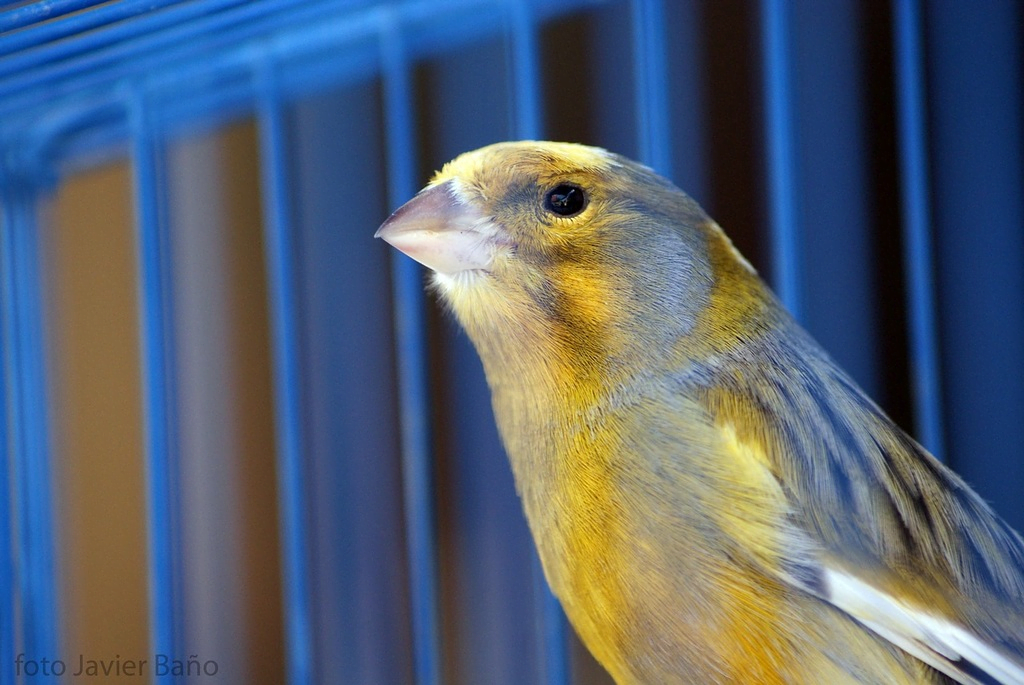The canary, a small yet vibrant bird, has captivated bird enthusiasts and pet owners worldwide with its melodious song and dynamic presence. Originating from the Canary Islands, this bird species has not only adapted to various environments but has also played a significant role in historical coal mining as an early warning system for toxic gases. Today, canaries are cherished pets that require specific care and attention to thrive in domestic settings. Understanding their dietary needs, social behaviors, and environmental requirements is crucial for anyone looking to welcome a canary into their home. This post aims to provide comprehensive insights into the care of canaries, ensuring they live healthy, joyful lives as part of your family.
Key Takeaways
- Canaries are a great pet option for those seeking a small bird with vibrant personality and beautiful song, but remember, like all pets, they require proper care and attention.
- Regular health check-ups are vital to ensure your canary remains healthy; pay attention to their diet, environment, and signs of distress.
- When setting up living conditions for a canary, ensure they have enough space to fly within their cage and that the environment is safe and stimulating to keep them happy.
- Always seek reputable breeders or adoption centers when looking to bring a canary into your home, prioritizing those who provide detailed health records and care instructions.
- Engage with the canary community for support and advice on caring for your bird, as learning from experienced owners can be incredibly beneficial.
- Remember, adopting a canary is a long-term commitment that requires time, patience, and love to ensure the well-being of your feathered friend.
Breed Overview
History
Canaries trace their roots back to the Canary Islands, where Europeans first discovered them. These small, vibrant birds quickly caught the attention of explorers for their melodious songs. Since the 17th century, canary breeding has evolved significantly. Breeders have developed a wide array of song and color variations, tailoring these birds to suit aesthetic and entertainment preferences.
Historically, canaries also played a crucial role in coal mines. Miners used them to detect toxic gases. Their sensitivity to air quality made them effective early warning systems, saving countless lives.
Physical Characteristics
Canaries are known for their small size and stunning color variations. They typically measure between 4 to 5 inches in length. The spectrum of their feather colors ranges from yellow, orange, to green, and even more exotic shades in domesticated breeds. Wild canaries tend to have a more subdued coloration compared to their domestic counterparts.
The differences between wild and domesticated canary breeds extend beyond color. Domestic breeds often display a variety of feather patterns and sizes not found in nature. A canary’s lifespan in captivity averages around 10 years, with proper care extending this period.
Personality and Temperament
Despite their small size, canaries possess a lively personality. They are generally solitary creatures but enjoy watching human activities from the safety of their cages. Known for being cheerful and active, they fill homes with joy through their singing.
While they appreciate human interaction, canaries do not like to be handled much. They prefer to sing for their owners rather than engage in physical contact. This trait makes them perfect pets for those who enjoy bird songs without the need for close handling.

Health And Care
Common Health Issues
Canaries may face respiratory problems, often due to poor air quality or drafts. Mites can also pose a threat, living in the bird’s environment and sometimes on the bird itself. Feather plucking is another issue, usually a sign of stress or boredom.
A clean environment is crucial to prevent bacterial and fungal infections. Owners should regularly clean cages and replace water and food dishes to maintain hygiene.
It’s important to watch for signs of illness. These include changes in singing patterns, appetite loss, and unusual feather appearance. Early detection makes treatment more effective.
Dietary Needs
A balanced diet for a canary includes seeds as the base. However, fruits, vegetables, and supplements add essential nutrients. This variety ensures they receive all necessary vitamins and minerals.
Fresh water daily is non-negotiable for their health.
Owners must avoid foods toxic to canaries like avocado, chocolate, and caffeine. These can cause serious health issues or even death.
Exercise Requirements
Regular out-of-cage time is vital for canaries. It allows them to fly and explore, which is crucial for their physical and mental health.
Toys and activities provide mental stimulation. They help prevent boredom and stress-related behaviors like feather plucking.
A spacious cage allows for movement even when inside. It supports physical health by enabling flight and exercise.
Grooming
Canaries need regular nail trimming to prevent overgrowth that can lead to mobility issues. Occasional baths help keep their feathers in good condition.
Clean and safe bedding materials are essential to avoid injuries and ensure comfort. Materials should be non-toxic and easy to replace or clean.
Grooming a canary requires gentle handling to avoid causing stress or injury. Always support their body carefully during grooming sessions.
Living with a Canary
Training and Socialization
Training a canary requires patience and consistency. Start by teaching them to sing or perform simple tricks. Use gentle encouragement and reward their efforts with treats. Canaries are quick learners, especially when training starts early.
ializing young canaries is crucial. It helps them become comfortable around humans. Gentle handling and soft speaking can make a big difference. Remember, rushing the process might scare them. So, take your time.
Environment
Canaries thrive in environments that mimic their natural habitat. Choose a quiet, well-lit area for their cage but avoid direct sunlight which can be harmful. Drafty spots are also bad for their health.
The cage should be spacious enough for flight and exercise, with bar spacing narrow enough to prevent escape or injury. Typically, a cage 24 inches wide by 18 inches high is suitable. This allows ample room for movement and toys.
Activities They Enjoy
Canaries love to sing and engage in playful activities. Here’s what they enjoy:
- Singing is not just an activity but a way of communication for them.
- Exploring new toys keeps their mind sharp.
- Flying inside a safe room gives them the much-needed exercise.
Toys like mirrors or simple puzzles intrigue them, offering mental stimulation. However, ensure these activities are varied to prevent boredom.

Breeder Advice and Adoption
Choosing a Breeder
When seeking a canary, finding a reputable breeder is crucial. Look for those who put the birds’ health and happiness first. They should be open about their breeding practices. Don’t hesitate to ask questions.
Visiting the breeder’s facility is a wise move. It lets you see where and how the canaries live. You want to find birds that are lively and in good health. The living spaces must be clean and roomy.
Adoption
Adoption offers a heartfelt way to bring a canary into your life. Shelters and rescue organizations have adult canaries longing for homes. Adopting one not only gives it a second chance but also enriches your life.
Before adopting, inquire about the bird’s health and past. This information helps ensure you’re ready to provide the care it needs.
Misc.
Popular Names
Choosing the right name for a canary is an enjoyable part of pet ownership. Many owners opt for names that reflect their bird’s color or personality. For instance, names like Goldie, Sunny, or Blaze are popular for yellow and orange canaries. Others may choose names based on the unique songs their birds sing, such as Melody or Harmony.
A growing trend involves naming canaries after famous singers or musical terms, acknowledging their beautiful voices. Names like Mozart, Adele, or Lyric celebrate the musical nature of these birds. When selecting a name, considering the bird’s individual traits can lead to a more meaningful choice.
Fun Facts
Canaries have played a significant role in scientific research. Their genetics and behavior provide valuable insights into avian biology. Studies on canaries have helped scientists understand how birds learn songs and how genetics influence behavior.
The variety of canary songs is astonishing. Some breeds are known for specific melodies, making them highly sought after by enthusiasts. This has led to competitions where trained canaries perform complex sequences of notes.
Male canaries stand out as the primary singers. Their performances peak during mating season, intended to attract females with their vocal prowess. This fascinating behavior highlights the complexity of avian communication.
Closing Thoughts
Canaries offer a unique blend of companionship and natural beauty, making them an excellent choice for bird enthusiasts. Their care requires attention to detail, from diet to habitat, ensuring they live healthy, vibrant lives. Breeders and adoption centers provide valuable advice, emphasizing the importance of responsible canary ownership. Engaging with these experts aids in understanding the nuances of canary care and contributes to a fulfilling experience for both the bird and its keeper.
The journey with a canary is rewarding, filled with learning opportunities and moments of joy. It encourages owners to delve deeper into the avian world, fostering a greater appreciation for these melodious creatures. Those considering a canary as a pet should seek reputable sources for adoption or purchase, prioritizing the well-being of these birds above all. Let the adventure begin by welcoming a canary into your home, embracing the responsibilities and delights that come with avian companionship.
Frequently Asked Questions
What is a brief overview of canary breeds?
Canaries are small, vibrant birds known for their singing abilities. They come in various colors and types, including the American Singer, Border Fancy, and Spanish Timbrado, each with unique characteristics.
How should I care for my canary’s health?
Provide a balanced diet consisting of seeds, fruits, and vegetables. Ensure they have access to clean water daily. Regular veterinary check-ups are crucial to detect and treat any potential health issues early.
What are the essentials of living with a canary?
Canaries need a spacious cage placed in a well-lit, draft-free area. They enjoy interaction but do not require socialization as much as other pets. Daily exercise outside the cage is beneficial for their wellbeing.
What advice do breeders give on adopting a canary?
Breeders recommend choosing a healthy, active bird from reputable sources. Pay attention to the canary’s singing and feather condition as indicators of good health. Inquire about the bird’s age, diet, and any special care requirements.
Is there specific guidance on feeding canaries?
A varied diet is key. Incorporate high-quality seed mixes designed for canaries along with fresh fruits and vegetables to ensure they receive all necessary nutrients. Avoid overfeeding and provide clean water daily.
How do I know if my canary is healthy?
Healthy canaries are active, alert, and engage in regular singing or chirping. Their feathers should be smooth and vibrant without any signs of fluffing or bald spots. Regular droppings indicate good digestive health.
Are there common health issues in canaries?
Yes, common issues include respiratory infections, mites, feather plucking due to stress or boredom, and obesity from improper diets. Early detection through observation and regular vet visits helps manage these conditions effectively.






0 Comments